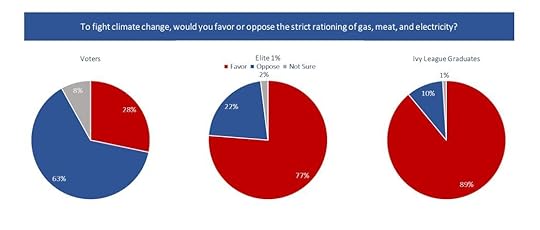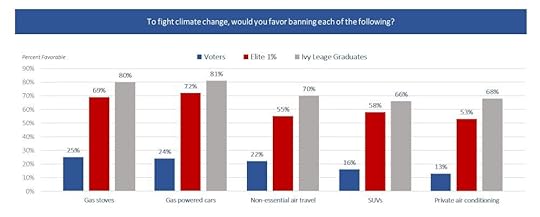Steve Bull's Blog, page 78
January 29, 2024
We Can’t Ban Our Way to a Better World
 We Can’t Ban Our Way to a Better World
We Can’t Ban Our Way to a Better World Henry, Diana Mara. Police dragging a smiling woman, November 1980. Diana Mara Henry Papers (PH 51). Special Collections and University Archives, University of Massachusetts Amherst Libraries
Henry, Diana Mara. Police dragging a smiling woman, November 1980. Diana Mara Henry Papers (PH 51). Special Collections and University Archives, University of Massachusetts Amherst Libraries
Il nous faut de l’audace, encore de l’audace, toujours de l’audace!
(We need audacity, more audacity, always audacity!)
Georges Jacques Danton
Just a short time ago, on a Saturday, before a flake of snow glistened in the air on the following Sunday, an imminent weather emergency caused New York Governor Kathy Hochul to “ban travel” and postpone the Steelers-Bills super Wild Card game until the following Monday.
Certainly, severe weather is a legitimate reason to cancel or postpone events, and to stridently warn against travel during white-out conditions in a blizzard, but a travel ban?
Banning isn’t limited to travel during white-out conditions in blizzards though. It is truly a bipartisan pastime. Ban gas stoves; Ban gas-powered generators; Ban books; Ban misinformation; Ban fake news; Ban gender affirming care; Ban parents from being notified of gender transitions; Ban abortions; Ban the banning of abortions; Ban gasoline powered cars and trucks; Ban the unvaccinated; Ban the unmasked; Ban DEI; Ban gas boilers; Ban coal; Ban nuclear; Ban high-capacity magazines; Ban guns; Ban incandescent lightbulbs;
Those bans are just to fix all of society’s important problems, but there are presumably less important things that need banning as well. What would really help is banning honors classes to produce equity, banning youth tackle football, and even banning sledding! In Canada!
If we pass just a few more laws that ban the things we don’t like and banish the people who support them, utopia will arrive and thou-shalt-not do anything.
Maybe you agree with some of these bans and maybe you disagree with others. Certainly if you have any political leanings at all, some of these bans will find your enthusiastic support and others your passionate fury…
…click on the above link to read the rest…
January 28, 2024
How Yemen’s ‘asabiyya’ is reshaping geopolitics
The Arabic word Asabiyya, or ‘social solidarity,’ is a soundbite in the west, but taken very seriously by the globe’s new contenders China, Russia, and Iran. It is Yemen, however, that is mainstreaming the idea, by sacrificing everything for the world’s collective morality in a bid to end the genocide in Gaza.
 Photo Credit: The Cradle
Photo Credit: The Cradle
When there is a general change of conditions,
It is as if the entire creation had changed
and the whole world been altered,
as if it were a new and repeated creation,
a world brought into existence anew.
— Ibn Khaldun
Yemen’s Ansarallah resistance forces have made it very clear, right from the start, that they set up a blockade in the Bab el-Mandeb and the southern Red Sea only against Israeli-owned or destined shipping vessels. Their single objective was and remains to stop the Gaza genocide perpetrated by the Israeli biblical psychopathy.
As a response to a morally-based call to end a human genocide, the United States, masters of the Global War Of Terror (italics mine), predictably re-designated Yemen’s Houthis as a “terrorist organization,” launched a serial bombardment of underground Ansarallah military installations (assuming US intel know where they are), and cobbled together a mini-coalition of the willing that includes its UK, Canadian, Australian, Dutch, and Bahraini vassals.
Without missing a beat, Yemen’s Parliament declared the US and UK governments “Global Terrorist Networks.”
Now let’s talk strategy.
With a single move, the Yemeni resistance seized the strategic advantage by de facto controlling a key geoeconomic bottleneck: the Bab el-Mandeb. Hence, they can inflict serious trouble on sectors of global supply chains, trade, and finance.
…click on the above link to read the rest…
Today’s Contemplation: Collapse Cometh LXIII–Primary Motivation For Society’s Elite
March 6, 2022 (original posting date)
 Athens, Greece (1984). Photo by author.
Athens, Greece (1984). Photo by author.Primary Motivation For Society’s Elite
It ain’t what you know that gets you into trouble. It’s what you know for sure that just ain’t so.
-Anonymous[1]
I’ve been reflecting a lot recently (for years to be honest) on the ever-present belief by most people that our governments/political class/ruling elite can lead the way to ‘solving’ our various crises, be it the ‘climate emergency’, ‘energy crisis’, ‘inflation’, ‘inequality’, ‘geopolitical disagreements’, etc.. I note such a perspective virtually every day be it in personal comments people make in social media posts and/or by journalists/contributors in the media (both mainstream and ‘alternative’); and it is particularly strong and echoed by almost everyone around election times or perceived ‘crises’.
Add to this belief the ‘bargaining/denial’ arguments that tend to suggest that the only reason the ‘problems’ have not been addressed/solved/mitigated is because we simply have not had the ‘right’ individuals or ‘party’ in power; once the ‘right’ people get chosen by the public, all will be well again — if the new government can overcome the disastrous policies/actions of the previous one or current political opposition[2].
I lost that perspective some decades ago[3]. I have increasingly come to view our world/nation state/regional ‘leaders’ (aka ruling elite/class) as part and parcel of our growing problems/predicament. In fact, more often than not I see their actions/policies as resulting in even worse situations — eventually[4] — yet they are often (always?) marketed to the public as optimal and beneficial for all (or may result in some slight, short-term pain, but most certainly will result in longer-term prosperity for all — think of the current narratives developing around the ‘austerity’ and ‘sacrifices’ required to support the war efforts in Ukraine[5]).
I have come to interpret our societal elites’ behaviour as primarily motivated by a never-ending drive to control/maintain/expand the wealth-generating/-extracting systems that provide their revenue streams and thus their power/wealth/prestige/privilege[6]. That some portion of the wealth they appropriate gets funnelled back into the public sphere is simply ‘the cost of doing business’; just as the number of financial institutions that knowingly ‘bend the rules’ to obtain obscene profits set aside a portion of that ill-begotten wealth to pay the eventual fines should they get publicly prosecuted for their shenanigans[7].
Perhaps the most egregious (but purposeful) ‘error’ our elite make is their chasing and cheerleading of the perpetual growth chalice (particularly economic growth[8], but they do also encourage population growth[9]). The common refrain/narrative is that growth is primarily — if not ‘solely’ — a benefit to human ‘progress’ and well-being, any negative impacts being discounted or rationalised away demonstrating a poor if not conveniently purposeful ignorance of the way complex systems behave.
It is as Donella Meadows argues in Thinking in Systems: A Primer[10]:
…a clear leverage point: growth. Not only population growth, but economic growth. Growth has costs as well as benefits, and we typically don’t count the costs — among which are poverty and hunger, environmental destruction and so on — the whole list of problems we are trying to solve with growth! What is needed is much slower growth, very different kinds of growth, and in some cases no growth or negative growth. The world leaders are correctly fixated on economic growth as the answer to all problems, but they’re pushing with all their might in the wrong direction. …leverage points frequently are not intuitive. Or if they are, we too often use them backward, systematically worsening whatever problems we are trying to solve.
It seems self-evident to me that this pursuit of perpetual growth runs into some fairly heavy obstacles in the sense of biophysical limits on a finite planet, despite arguments to the contrary — especially by most economists who argue for infinite substitutability as the ultimate solution to such limits, or the ever-expanding ‘printing’ of money.
There is not just the issue of resource limits and diminishing returns on extraction/exploitation of the necessary resources for our ever-increasing societal complexities (especially energy-producing ones) but the predicament of ecological overshoot that occurs when a species exceeds its environmental carrying capacity[11].
It’s instructive at this juncture to revisit what archaeologist Joseph Tainter points out in The Collapse of Complex Societies[12] given that his analysis and thesis rests primarily upon ‘collapse’ in the sociopolitical sphere (which then has serious repercussions in pretty well everything else for human societies).
Tainter argues that ”[c]omplex societies are problem-solving organizations, in which more parts, different kinds of parts, more social differentiation, more inequality, and more kinds of centralization and control emerge as circumstances require.”[13] They are maintained almost exclusively through organisational control and specialisation.
Growth of complexity refers to size, distinctiveness and number of parts, variety of social roles, distinctiveness of social personalities, and a variety of mechanisms to organize parts into a whole.
Where more complex political differentiation exists: permanent positions of authority/rank can exist in an ‘office’ that can be hereditary in nature; inequality becomes more pervasive; groups tend to be larger and more densely populated; political organisation is larger, extending beyond local community; a political economy arises with rank having authority to direct labour and economic surpluses; and, with greater size comes a need for more social organisation that is less dependent upon kinship relations, and the constraint that kin-ties had on individual political ambitions is lost.
States, perhaps the most complex of human societies, are characterized by: their territorial organisation (i.e. membership determined by place of birth/residence); a ruling authority that monopolizes sovereignty and delegates all power — with the ruling class being non-kinship-based professionals that hold a monopoly on force within the territory (e.g. taxes, laws, draft) and is validated by a state-wide ideology; maintenance of territorial integrity is stressed; and, greater stratification and specialisation, particularly with regard to occupation, develops.
Complex states, like their simpler societies, must divert resources and activities to legitimising authority in order for the political system to survive. While coercion can ensure some compliance, it is a more costly approach than moral validity.
To ensure moral validity amongst the populace, states tend to focus on a symbolic and scared ‘centre’ (necessarily independent of its various territorial parts) which is why they always have an official religion, linking leadership to the supernatural (which helps unify different groups/regions). As the need for such religious integration recedes — although not the sense of the scared — once other avenues for retaining power exist.
In summary, organisational structures that arise in complex societies[14], especially as they grow larger and even more complex[15], concomitantly see the development of ‘power’ structures[16] that lead to outsized influence/power over others by a controlling elite that then creates and fosters legitimisation narratives, and/or coercive policies, to ensure these structures are maintained/expanded.
In addition, Tainter maintains that support, be it via legitimisation or coercion, also requires a material base. This support, however, can decline when output failure (political and/or material) ensues. As this process is ongoing, it necessitates resource mobilisation in perpetuity — a significant impossibility on a finite planet where such exploitation encounters diminishing returns due to our proclivity to extract the easiest- and cheapest-to-retrieve resources first. The tendency by the elite to deal with output failure is to begin pulling in resources from other spheres and/or increase coerciveness to maintain their priorities — be it using domestic reserves and/or surpluses, and/or exploitation of other societies.
Given the above, it is not a stretch to see that the primary motivation of the elite conflicts quite significantly with any policy/action/belief that would contend that growth cannot and should not be pursued in perpetuity. Throw in the evidence that we are in ecological overshoot and the predicament for humanity multiplies several-fold.
Then we encounter all the psychological and biological/physiological mechanisms that affect human beliefs and actions, and our situational predicament explodes. Cognitive dissonance reduction. Deference to authority. Desire to believe one has agency. Groupthink. Optimism bias. Confirmation bias. Avoidance of pain and seeking of pleasure. Rationalisation/justification of behaviours that conflict with certain beliefs. Overarching propensity to deny reality.
This all adds up to a tendency to believe in comforting lies and avoid harsh realities. We want to believe the propaganda of the elite and their promises to address and ‘solve’ our crises. We want to believe we have significant impact on society and agency via the ballot box. We want to avoid looking in the mirror. We want to continue with our lives unencumbered by existential worries and let others, our ‘leaders’, ‘solve’ our ‘problems’.
What we have instead, I tend to believe, are elite confabs that result in grandiose promises to benefit society at large while in actuality end up funneling wealth to the owners of the industries and financial institutions required to produce and fund the actions/directives sold to us as ‘solutions’. A mainstream media (again, owned by the elite) that parrots the elitist rhetoric and provides a widely dispersed platform for the marketing and misleading propaganda of the ruling class, especially legitimisation narratives. An ever-expanding potpourri of racketeering, such as the ‘green/clean’ energy narrative, ‘equitable/beneficial’ creation/distribution of fiat currency, the necessary expansion of ‘war’ and government, etc..
The world is not as it appears to most. What most of us believe in is, in my opinion, a tightly controlled illusion that benefits a minority primarily at the expense of the majority.
There are no ‘solutions’ to our predicament of ecological overshoot and the inevitable collapse that is awaiting us (if not already begun). There is, at best, a ‘hope’ for some to come out the other side of the bottleneck we’ve created (primarily via our leveraging of technology to overexploit our planet and expand the human experiment).
But as I shared with someone who commented on my last contemplation: “Hope is very much a two-edged sword. It can indeed foster denial and bargaining so as to avoid the stress of cognitive dissonance and provide pleasure while avoiding pain. It can, depending upon how one’s energies are focused with some ‘hope’, serve to provide direction and impetus to acting in ‘better’ ways. As I see it, however, the problem is that our ‘elite’ (and feckless others) pedal and leverage it for purely self-serving purposes, and most soak their version of it up because comforting lies are much more enjoyable than harsh realities.”
Seeing beyond the grand illusion that has been constructed over the ages by the elite is, again in my opinion, what is necessary to understand what can and should be accomplished to salvage some of our human experiment. It is, as I have argued before, most important to attempt to relocalise as much as is possible potable water procurement, food production, and regional shelter requirements. It is not to give over responsibility to others who do not have your best interests but theirs in mind. And it is not to believe in their ‘solutions’ — that way surely leads to ruin.
A handful of readings that support the notion that the elite’s primary motivation is the control/expansion of the wealth-generating/extracting systems that provide their wealth/power/prestige/privilege:
https://cdn.mises.org/Anatomy%20of%20the%20State_3.pdf
There Won’t Be Any Winners Because The Status Quo Is Corrupt EverywhereJuly 27, 2022 Systemic corruption on this vast scale optimizes failure and collapse. Debating which nations will “win”…www.oftwominds.comcharles hugh smith-Money from Nothing: A Primer on Fake Wealth Creation and its Implications (Part…
Frequent contributor Zeus Y. explains how the financial system creates fake “wealth” from nothing and why the entire…www.oftwominds.comcharles hugh smith-When Belief in the System Fades
Knowledgeable correspondent Jon H. recently recommended an important book on the elites which sit astride the U.S…www.oftwominds.comcharles hugh smith-Fragility and Resilience
Non-resilient systems are prone to rapid devolution or collapse. The same can be said of structures, enterprises…www.oftwominds.comcharles hugh smith-The Big Squeeze: Part 2: Abused Fundamentals and Fake Markets: How They Play Out
(January 28, 2011) The Big Squeeze, Part 2: Abused Fundamentals and Fake Markets: How They Play Out I am pleased to…www.oftwominds.com
https://medium.com/@joe_brewer/the-global-architecture-of-wealth-extraction-4c0a6b954a1
What Happens When Corruption Is SystemicThe human mind evolved to deal with singular threats — a lion jumping out of the bushes or a wildfire spreading through…medium.comSystems of Wealth Hoarding Hide in Your Mind
The internet is exploding with conversations about the Panama Papers — the largest data dump in history of secret files…medium.com
[1] Often credited to humourist Mark Twain, research suggests this ‘just ain’t so’ (see: https://quoteinvestigator.com/2018/11/18/know-trouble/).
[2] I have come to the conclusion that the only thing that really changes after an election is the narrative we tell ourselves and others: If my ‘team’ wins, all will be right with the world soon enough; if the other ‘team’ wins, the world will soon go to hell in a handbasket.
[3] Through the years I have been involved in the ‘political’ sphere in a number of roles. During some of my post-secondary years, I chaired a university department’s students’ ‘union’ and got to witness academic ‘politics’ first-hand. Perhaps the most eye-opening experience, however, were the years I spent as the chair of a political action committee for a relatively large teachers’ federation/union. After that, I spent a number of years as one of the chief negotiators for the region’s school administrators.
[4] The time lag that often occurs between an action/policy and the negative consequences can sometimes be quite long, causing a connection between them to be mostly unseen. However, very visible (and always highlighted) ‘benefits’ can occur quickly — think of infrastructure construction here where the project is clearly visible and can be laid before the public but the ecological/resource consequences are externalised and/or temporally far-off allowing them to be ignored/discounted.
[5] https://www.axios.com/2022/03/12/democrats-gas-prices-russia-ukraine; https://caitlinjohnstone.substack.com/p/how-much-are-we-prepared-to-sacrifice?s=w; https://caitlinjohnstone.substack.com/p/more-escalations-in-online-censorship?s=w;
[6] I have reached this perspective through personal experience, observation of current events, and lots of reading. A handful of examples of relevant readings will be included at the end of this contemplation.
[7] https://www.nytimes.com/2015/05/21/business/dealbook/guilty-pleas-and-heavy-fines-seem-to-be-cost-of-business-for-wall-st.html; https://finance.yahoo.com/blogs/breakout/11-billion-fine-just-cost-doing-business-jpmorgan-175948500.html; https://scholarship.law.upenn.edu/faculty_scholarship/2147/; https://www.reporterherald.com/2013/01/16/bank-fines-just-a-cost-of-business/
[8] https://www.businesstoday.com.my/2022/07/09/encouraging-gdp-growth-will-strengthen-economy-in-q2/; https://www.gov.ie/en/press-release/4d723-minister-donohoe-notes-strong-growth-in-gdp-and-encouraging-indicators-for-the-domestic-economy/; https://www.businessinsider.com/tech-industry-growth-midsize-us-cities-recession-economic-recovery-2020-10; https://www.forbes.com/sites/garyshapiro/2013/01/23/six-ways-to-create-economic-growth/?sh=220ee7017e32; https://www.cbpp.org/research/economy/economic-growth-causes-benefits-and-current-limits;
[9] https://www.bbc.com/news/world-europe-51118616; https://www.nytimes.com/2016/09/14/world/europe/italy-births-fertility-europe.html; https://www.reuters.com/article/us-japan-economy-population/japan-targets-boosting-birth-rate-to-increase-growth-idUSKCN0T113A20151112; https://southeusummit.com/europe/france/migration-creates-net-positive-population-growth-france/
[10] Meadows, D.. Thinking In Systems: A Primer. Chelsea Green Publishing, 2008. (ISBN 978–1–60358–055–7)
[11] Catton, Jr., W.R.. Overshoot: The Ecological Basis of Revolutionary Change. University of Illinois Press, 1980. (ISBN 978–0–252–00988–4)
[12] Tainter, J.. The Collapse of Complex Societies. Cambridge University Press, 1988. (ISBN 978–0–521–38673–9)
[13] Ibid. P. 37
[14] https://en.wikipedia.org/wiki/Complex_society; https://anthropology.iresearchnet.com/complex-societies/
[15] https://www.researchgate.net/publication/228384313_Organizational_complexity; https://www.ncbi.nlm.nih.gov/pmc/articles/PMC3367695/; https://www.researchgate.net/publication/286533126_The_emergence_of_social_complexity_Why_more_than_population_size_matters;
[16] https://www.britannica.com/topic/social-structure/Theories-of-class-and-power
Today’s Contemplation: Collapse Cometh XLII–Criticising ‘Renewables’ is Not a Sin
 Tulum, Mexico (1986) Photo by author
Tulum, Mexico (1986) Photo by authorCriticising ‘Renewables’ is Not a Sin
The following ‘contemplation’ follows on the heels of a discussion I began with another within a Facebook group I am a member of. The post and dialogue can be found here. Suffice it to say, I was, as has happened numerous times, criticised for a comment that challenged an argument for accelerating our shift from fossil fuels to ‘renewable’ technologies.
What follows is my response to their response to my comment that suggested we need to simplify our existence and not accelerate our pursuit of environmentally-/ecologically-destructive and complex technologies.
Let me respond to each of your paragraphs:
First, indeed humans have harnessed wind and water power for millennia but using far, far less complex and resource-intensive technologies and for far, far fewer humans so their impact on the environment has been multiple times less, and during times when numerous biophysical limits had yet to be broached or nearing such overshoot. You then create a straw man implying I am arguing to return to the ‘Stone Age’, which I did not[1]. I left open the nature of any type of ‘simplicity’ that we should be aiming for but there’s a good argument to be made that ‘simple’ windmills/waterwheels for far fewer humans than currently exist may be the only ‘sustainable’ option[2]. What I did argue is that we need to NOT seek complex technologies that continue the destruction of the planet as our ‘modern’ harnessing of wind/solar/water do; facts you have completely glossed over[3].
Second, to point out the significant issues with non-renewable renewables (NRRs), does not necessarily feed into the ‘climate change denial, fossil fuel fundamentalism’ you accuse me of[4]. This is another straw man based upon a complete lack of contextual interpretation of my comment, and continued ignorance of the environmental destructiveness issue I raise; to say little of the reality that a massive push to accelerate the processes needed to produce NRRs would require massive fossil fuel inputs (and lots of other finite resources; thus the reason they are non-renewable). I am as concerned about continued fossil fuel extraction and its impacts as I am about all the other resource extractions we continue to rely upon (and expand as diminishing returns increase in severity).
Third, I would argue we are not where we are primarily because of fossil fuels (although they have likely sped up our predicament) but because of our propensity to expand and create complex societies based upon a number of finite resources. Humanity has shown its complex societies have been ‘unsustainable’ from the very first ones, long before fossil fuels ever came into the picture — every complex society that has ever existed has eventually ‘collapsed’ due to diminishing returns on investments in complexity[5], and accelerating an adoption of NRRs fits into this perfectly; they require significantly increased inputs compared to outputs (while continuing to destroy our biosphere[6]).
Keep in mind that resource ‘wars’ far, far predate our past few decades of fighting over oil and gas (resources that, unfortunately, underpin our current massive global complexities and footprint). Fossil fuels have simply expedited our propensity to overshoot our local carrying capacity and taken it global in nature. It is this, ecological overshoot, that is our predicament; the consequences of which we increasingly appear to be unable to avoid because we’re misdiagnosing/misinterpreting it (and have been for some decades). I would argue that there is nothing that is ‘sustainable’ for close to 8 billion humans. Nothing, probably not even ‘Stone Age’ hunting-and-gathering.
By all means, let’s transition away from fossil fuels but let’s not exacerbate our predicament by chasing the wrong path that is increasingly being shown to be just as detrimental to our species and all the other ones we depend upon. If we are not talking significant degrowth and simplification, then we are just creating comforting narratives to reduce our cognitive dissonance[7].
Having said all this, however, I am convinced we will attempt the push into NRRs that you advocate as we slide down the Seneca cliff of resource/energy availability. For, after all, the ruling class[8] that controls/influences the mainstream narratives (and what most people think/believe) stand to profit handsomely from the effort for they also control/influence all the industries and financial institutions that are required to pursue such a path. The result will surely be a trajectory further into ecological overshoot and thus a more massive ‘collapse’ (which always accompanies a species overshooting its environment). Nature always bats last and we continue to deny this and end up putting ourselves in greater danger. And, unfortunately, it would seem even a lot of the most well-intentioned individuals and groups are cheerleading us along the wrong path.
[1] While I did not suggest we would return to the ‘Stone Age’ that may indeed be the endgame of our unknowable future. In fact, some of humanity may be ‘lucky’ to make it through the bottleneck we have created and actually live in a ‘Stone Age’ type way. Time will tell.
[2] What might be ‘sustainable’ depends upon a host of factors, most importantly the number of humans and the nature of their living standards. More resource-dependent living standards necessarily means far fewer humans can be supported.
[3] The industrial processes necessary to create and produce the current technologies to harness wind, water, and solar energy are highly finite resource-dependent (including fossil fuels) and require significant mining, transportation, refining, and construction processes that result in concomitant waste production; both toxic and non-toxic in nature.
[4] It seems any criticism of ‘renewables’ is immediately construed by many as being in favour of continued fossil fuel extraction and use. This seems to me to be more of an instantaneous emotional reaction than a considered interpretation of the context in which such criticism is made. Such dichotomous thinking, while a common defense mechanism, prevents one from seeing the complexities and nuances of situations and distorts perceptions.
[5] See archaeologist Joseph Tainter’s The Collapse of Complex Societies.
[6] https://www.mdpi.com/1996-1073/14/15/4508/htm?fbclid=IwAR2ISt5shfV4wpFEc8jxbQnrrxyllyvZP-xDnoHhWrjGTQRIqUNfk3hOK1g
https://phys.org/news/2020-09-renewable-energy-threat-environment.html
https://www.nature.com/articles/s41467-020-17928-5
[7] My discussion here doesn’t even begin to elaborate on all the additional ‘headwinds’ we are bumping up against besides resource limits and overloading of planetary sinks, a significant one being the massive ‘debt’ that currently exists. With debt being, more or less, a claim on future energy we are in substantially more dire straits than it appears on the surface due to significant debt obligations and the Ponzi-like nature of our financial/monetary/economic systems. Most, if not all, economic activity could find itself collapsing completely with the implosion of the debt bubbles that exist far before resource limits bring it all crashing down; to say little about the impact of geopolitical stressors.
[8] I use the term ‘ruling class’ as a catch-all for those individuals/families/groups that sit atop a complex society’s power and wealth structures; and whose prime motivation is the expansion/control of the wealth-generation/-extraction systems which they tend to control/own/influence.
January 26, 2024
Visualizing All The Nuclear Waste In The World
Nuclear power is among the safest and cleanest sources of electricity, making it a critical part of the clean energy transition.
However, nuclear waste, an inevitable byproduct, is often misunderstood.
In collaboration with the National Public Utilities Council, Visual Capitalist’s Bruno Venditti created the following graphic to show the volume of all existing nuclear waste, categorized by its level of hazardousness and disposal requirements, based on data from the International Atomic Energy Agency (IAEA)..
Storage and DisposalNuclear provides about 10% of global electricity generation.
Nuclear waste, produced as a result of this, can be divided into four different types:
Very low-level waste: Waste suitable for near-surface landfills, requiring lower containment and isolation.Low-level waste: Waste needing robust containment for up to a few hundred years, suitable for disposal in engineered near-surface facilities.Intermediate-level waste: Waste that requires a greater degree of containment and isolation than that provided by near-surface disposal.High-level waste: Waste is disposed of in deep, stable geological formations, typically several hundred meters below the surface.Despite safety concerns, high-level radioactive waste constitutes less than 0.25% of total radioactive waste reported to the IAEA.
Stored and disposed radioactive waste reported to the IAEA under the Joint Convention on the Safety of Spent Fuel Management and on the Safety of Radioactive Waste Management. Data is from the last reporting year which varies by reporting country, 2019-2023.
The amount of waste produced by the nuclear power industry is small compared to other industrial activities.
While flammable liquids comprise 82% of the hazardous materials shipped annually in the U.S., radioactive waste accounts for only 0.01%.
January 24, 2024
Draining America First—The Beginning of the End for Shale Gas

The United States is the biggest producer of natural gas in the world and recently became the largest exporter of LNG. The industry is scrambling to build LNG (liquefied natural gas) export terminals as fast as permitting and funding will allow.
This couldn’t come at a worse time. Instead of having an almost infinite amount of natural gas as many believe, we may be witnessing hard limits to that supply.
Figure 1 shows that shale gas plays have reached an apparent peak and may be starting to decline. It’s not a good sign although some of this may be related to seasonal effects or regulatory matters. At the very least, the rate of production growth is slowing.
 Figure 1. Drain America First. Shale gas plays have begun to decline as U.S. becomes biggest world LNG exporter. Source: EIA, Enverus & Labyrinth Consulting Services, Inc.
Figure 1. Drain America First. Shale gas plays have begun to decline as U.S. becomes biggest world LNG exporter. Source: EIA, Enverus & Labyrinth Consulting Services, Inc.Any decrease in the growth of shale gas could become an acute problem because it accounts for 82% of U.S. dry gas production (Figure 2).
 Figure 2. Shale gas accounts for 82% of U.S. dry gas production. Source: EIA, Enverus & Labyrinth Consulting Services, Inc.
Figure 2. Shale gas accounts for 82% of U.S. dry gas production. Source: EIA, Enverus & Labyrinth Consulting Services, Inc.I am frankly less concerned about whether or not shale gas production is currently in decline as I am about what will happen to supply in five or ten years.
That concern is based on plans for increased LNG and pipeline exports. Net LNG exports are expected to increase +6.4 bcf/d by 2030 & another +7.1 bcf/d by 2035 (Figure 3). Total net exports are projected to increase +15 bcf/d by 2035 from 13 to 29 bcf/d.
 Figure 3. Net LNG exports expected to increase +6.4 bcf/d by 2030 & another +7.1 bcf/d by 2035. Total net exports to increase +15 bcf/d by 2035 from 13 to 29 bcf/d. Source: EIA & Labyrinth Consulting Services, Inc.
Figure 3. Net LNG exports expected to increase +6.4 bcf/d by 2030 & another +7.1 bcf/d by 2035. Total net exports to increase +15 bcf/d by 2035 from 13 to 29 bcf/d. Source: EIA & Labyrinth Consulting Services, Inc. Let’s take a quick look at production from the three biggest pure shale gas plays (Figure 4).
…click on the above link to read the rest…
January 23, 2024
‘Playground of choice’: Iran mobilises to drive US troops out of Iraq
When Iraqi Prime Minister Mohammed al-Sudani arrived in New York City in September for the UN General Assembly, a delicate truce was in balance between the two foreign powers that loom over Baghdad.
Iraqi paramilitaries, backed by Iran, had frozen their attacks on US troops in the country. Iraq’s new leader arrived in New York City amid the lull. He was feted on a circuit of swanky receptions with western businessmen and diplomats on the sidelines of the General Assembly, as he pitched Iraq’s oil-rich but corruption-riddled economy as an investment destination.
Four months later, the Iraqi leader is condemning Iran and the US for launching deadly strikes in his country and his investment pitch to the global elite at Davos Switzerland is overshadowed by his call for the US military and its coalition partners to leave Iraq.
Since the Hamas-led attacks on 7 October and the war in Gaza, Iranian-backed militias have launched at least 70 attacks on US forces in Iraq.
In early January, the US hit back with its most powerful response yet, launching a drone strike in Baghdad that killed Mushtaq Taleb al-Saidi, also known as Abu Taqwa, a senior commander in the Popular Mobilisation Units, an umbrella organisation of Iraqi state-funded and Iran-aligned, Shia militias.
Baghdad hit out at the strike as “a violation of Iraq’s sovereignty”. But no sooner was Iraq chastising the US for the strike, when Iran launched a barrage of ballistic missiles into the Iraqi city of Erbil, killing four people, including a prominent Kurdish real estate developer and his one-year-old daughter.
…click on the above link to read the rest…
Disease X and the Corrupt Lancet
The globalists launch their new weapon to take over the world

It is Davos (World Economic Forum) week and the MSM hysterical propaganda push from the globalists regarding “disease X” is in full swing. Just take a gander at a few of the Corporate Mockingbird Media headlines today.



Almost every major news outlet in the world has run black propaganda pieces about disease X. Why do I write black propaganda – because the “experts” aren’t actually named, the peer-reviewed papers supporting the thesis of “a deadly pathogen causing 20 times more deaths than COVID-19” or “killing 20 times more people than COVID-19” or “killing 50 million people” are non-existent. Yet these narratives are all headline news in main stream media.
This is just another exercise in globalized messaging to support the WHO (World Economic Forum) and WEF pushed narrative that governments must pour $billions into the largest transnational corporations in the world to “cure” a non-existent disease.
What isn’t black propaganda but rather grey propaganda is that this fearporn is being pushed by the WEF and the WHO. WHO officials are most of the featured speakers and panelists on “Disease X” at the Davos meeting this week. From the WEF website:
World leaders are set to discuss preparation for the next pandemic at the World Economic Forum in Davos…
Officials from across the globe will be heading to the annual meeting in Switzerland, with the risk posed by what’s known as Disease X one of the key items on the agenda.
The meeting will address new warnings from the World Health Organisation (WHO) that the unidentified disease could kill 20 times more people than the coronavirus pandemic.
…click on the above link to read the rest…
As China Stocks Crash, Beijing Proposes Multi-Trillion Market Rescue Package
Earlier today, we lamented the latest implosion in Chinese markets, which we discussed in “China Stocks Crash Through ‘Snowball Derivatives’ Trigger Levels Overnight“, in which we pointed out the unprecedented failure of the centrally-planned market to halt its collapse be it through short selling bans, or even the latest impotent intervention by the “National Team”, China’s Plunge Protection Team, which today failed to spark even a modest rebound in the relentless selling which had triggered key liquidation levels.
We then summarized just how badly Beijing had boxed itself, noting that “after short selling ban did nothing, China PPT stepped in… and couldn’t do jack. Beijing trapped.” We concluded that “either they watch liquidation cascade as snowball derivatives are knocked in sparking rout and leading to social unrest, or they stop talking and finally do something.”
Well, just a few hours later we were proven correct again, because shortly after China reopened on Tuesday, Bloomberg reported that according to “people familiar with the matter, asking not to be identified” – i.e., government sources eager to do a market test, China is considering a package of measures to stabilize the plummeting stock market, after earlier attempts to restore investor confidence fell short and prompted Premier Li Qiang to call for “forceful” steps.
Specifically, Beijing is reportedly seeking to “mobilize” about 2 trillion yuan ($278 billion), mainly from the offshore accounts of Chinese state-owned enterprises, as part of a stabilization fund to buy shares onshore through the Hong Kong exchange link; it has also earmarked at least 300 billion yuan of local funds to invest in onshore shares through China Securities Finance Corp. or Central Huijin Investment Ltd.
…click on the above link to read the rest…
Shocking Poll Exposes How Much the Elite Hate Us
A shocking poll exposes the utter contempt the elite holds the general public in, with more than three quarters wanting to ration food and energy to combat ‘climate change’ and a majority wanting air travel for holidays banned.
The survey was conducted by the Committee to Unleash Prosperity (CUP), a Maryland-based non-profit advocacy group.
The organization polled members of America’s 1 per cent – defined as people who have a postgraduate degree and an annual income of more than $150,000.
77 per cent of elitists who were asked, “To fight climate change, would you favor or oppose the strict rationing of gas, meat and electricity?” said they would favor such a policy.
That figure rises even higher to 89 per cent amongst Ivy League graduates.

Presumably, their wealth will ensure they are exempt from such rationing while poor people can go whistle.
In addition, 69 per cent of elitists want an immediate ban on gas stoves, while 81 per cent want gas powered vehicles outlawed.
A majority also want the government to forbid the use of air conditioning and non-essential air travel, effectively outlawing vacations, rules that presumably won’t apply to their private jets and luxury compounds.

67 per cent of elitists also believe that teachers should decide what children are taught compared to 26 per cent who think parents should decide.
The poll also reveals how the elite are totally at odds with the general public in both lifestyle and beliefs.
When canvassed on how much freedom the United States should bestow on its citizens, 47 per cent said people had too much freedom compared to 21 per cent who said there was too much control.
In comparison, 57 per cent of voters said there was too much control compared to 16 per cent who said there was too much freedom.
…click on the above link to read the rest…






